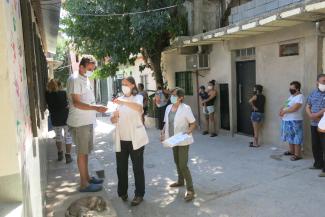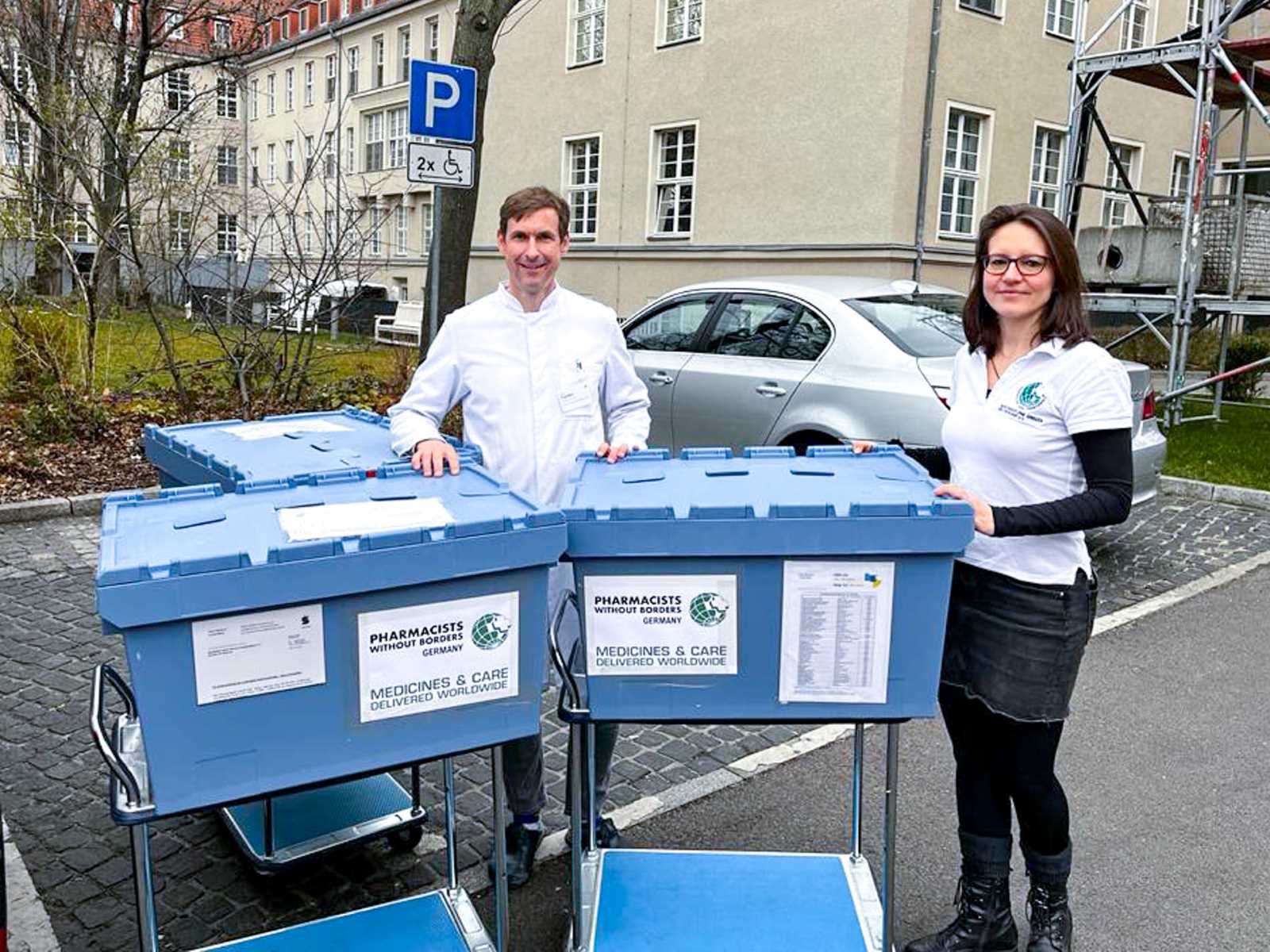Medication supply
Slum pharmacy in Buenos Aires

Before the start of the Russian war of aggression against Ukraine, a pharmacy in Argentina with an annual volume of about € 300,000 was the largest project of the non-profit organisation Apotheker ohne Grenzen (AoG – Pharmacists Without Borders).
In 2022, the pharmacy celebrated its twentieth anniversary. “We started with a five-square-meter pharmacy and now reliably supply medication to up to 2,000 patients,” says Carina Vetye, an Argentinian-German pharmacist who founded and still runs the project in her hometown Buenos Aires.
The pharmacy, which has five part-time employees, is integrated into a health centre in the slum of Villa Zagala, where good hygiene, nutrition and health care cannot be taken for granted. “We want to give sick people what they need – the right medication at the right time, regularly and free of charge,” Vetye says with regard to chronically ill patients.
Focus on dental hygiene
The project, which has a total of 14 local employees, places particular emphasis on dental hygiene. Toothaches can severely impact daily life – eating becomes difficult, children stay home from school and adults with missing teeth have a harder time finding jobs. For that reason, Vetye not only works in the pharmacy, but also teaches dental hygiene classes for children and adults at nursery and primary schools and distributes plaque disclosing tablets and toothbrushes for prevention.
Now the first generation of young slum residents without dental problems is growing up. Vetye sees the ongoing uncertainty in drug supplies as well as the high staff turnover in the health centre as challenges for the coming years. “When consulting with doctors and dentists, we always have to start over from the beginning,” she says, summing up: “We have to take the long view. These problems developed over decades. There are no quick fixes.”
Christian Splett is the deputy press officer of the Bundesvereinigung Deutscher Apothekerverbände (ABDA – Federal Association of German Pharmaceutical Organisations) in Berlin and a volunteer board member of Apotheker ohne Grenzen. He is expressing his personal views in this essay.
c.splett@psfde.org







